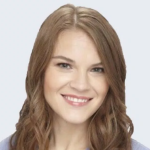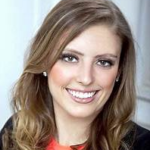Suzannah Weiss is a freelance writer and editor. I reached out to her after I read (and loved) articles on multiple sites and realized that they were all written by the same person. As a writer, it’s helpful for me to learn from other writers, so I contacted Suzannah for advice and asked if I could feature her in a Career Profile. Luckily, she said yes! Suzannah covers a variety of topics including sex and relationships, gender issues, health, music, science, and politics. She primarily writes for Glamour, Complex, Refinery29, Bustle, Everyday Feminism, The Washington Post, Mic, Vice, Men’s Health, Salon, Audiofemme, and Ravishly. Her writing has also appeared in The Village Voice, Cosmopolitan, Elle, Marie Claire, Self, Seventeen, Bitch, Bust, Paper Magazine, Business Insider, Redbook, Good Housekeeping, Yahoo, The Huffington Post, Buzzfeed, Alternet, xoJane, Popsugar, Thought Catalog, The Good Men Project, The Frisky, YourTango, Role/Reboot, The Freelancer, and more. She regularly appears on radio shows and podcasts to discuss gender, body image, and social justice. She also offers editing and consulting services to businesses and writers. Suzannah has a bachelor of science in cognitive neuroscience and a bachelor of arts in gender and sexuality studies and modern culture and media with honors from Brown University, where she received the Barbara Banks Brodsky Prize for Excellence in Real World Writing and the Pembroke Center for Teaching and Research on Women Undergraduate Fellowship. She has conducted research for Brown’s Social Cognitive Science Research Center, Humanity-Centered Robotics Initiative, and Pembroke Center for Research and Teaching on Women.
How did you decide to become a freelance writer?
It wasn’t an active decision. I was working in a job in the tech industry that didn’t fulfill me and decided to start blogging and submitting to feminist publications on the side so I could do something I enjoyed to stay sane.
Just as I started getting my first acceptance emails, the startup I was working for underwent a drastic downsizing that left all of sales and marketing laid off. I thought, “I’ll just do some writing while I look for a full-time job.” But over the course of the coming months, I realized that freelance writing offered me more opportunities, money, and independence than a full-time job can and provides a lifestyle that fits my personality.
I’m the most impatient person ever, and having several jobs — plus having those jobs change every few months as new opportunities arise — keeps me from getting bored. And as a free spirit, I can’t stay in the same place for long. When I get antsy, I can spend a week couchsurfing in a different city or move completely and keep doing my job. In fact, I plan on spending the fall traveling around Europe!
What is a day as Suzannah like? Please walk me through a day!
I wake up around 7:00 am, get out my computer (which I keep on my bed when I sleep — one of my many quirky living habits), and start looking for stories to pitch. I cover news for Glamour.com, Refinery29, Bustle, and Complex, mostly. These jobs involve the same thing: send a batch of pitches, get the go-ahead on a few, then write them. I’ve been publishing around 15 pieces per day lately!
Afterward, I might go running along the river, meet with a PR person, or work on other, longer-term articles. (In addition to daily shifts, I usually write a few articles per week for other publications like The Washington Post and Everyday Feminism.) Then, at night, I’ll either go out with friends, go to a concert (I review concerts for Audiofemme), or go to a writing group.
What is your favorite thing about working in journalism?
I love all the strange, spontaneous encounters I have. Earlier this year, as part of my job, I attended a cuddle party (yup, that’s a thing) and interviewed three professional cuddlers (also a thing), the host of a popular dating podcast, and 20 random women in New York City parks. Last year, I got a free trip to Houston to cover a music festival. I’ve also interviewed several reality TV stars. These connections spiral off one another and introduce me to even more new people and communities.
My profession brings out my adventurous side, forces me to leave my comfort zone, and exposes me to worlds I would have never otherwise discovered.
You’ve written for publications like Glamour, The Washington Post, Salon, Elle, Cosmopolitan, Marie Claire, Seventeen, and more. What are your tips for pitching and getting published?
When I first started submitting my writing, I didn’t have any connections or know anything about the industry. I just wrote about topics like feminism, consent, and dating that I wanted people to think about differently and submitted them again and again until someone bit.
There really is no shortcut — you have to put in the sweat, blood, and tears. But I have learned a ton since, and for people who are looking to break into the industry or improve their writing careers, I offer consulting, which you can learn more about on my website.
What are your three top tips for writers?
In a profession that depends on having a sharp mind and producing a lot of output quickly, your energy is the most valuable resource. They say time is money, but really, energy is money. I don’t like to be prescriptive about health because different things work for different people, but do some experimenting and figure out what makes you most energetic and focused. For me, for example, it’s going to bed before midnight, exercising at least several times a week, eating a high-protein diet, and going easy on caffeine so that it works when I really need it.
Let go of your preconceived notions about how long it takes to write a piece, and get over your guilt about “only” spending a certain amount of time on an assignment. Your editor only cares about the end product, and when you really focus and work as quickly as you can, you’ll be surprised by how little time it takes to write an article. Do an experiment by challenging yourself to write a piece within a particular time frame, without worrying about making it good. You might find it comes out just as good as the work you produce when you take your time. I like to create fake deadlines for myself and race against the clock when I write. I’ve learned that a lot of the time I used to spend writing was just the result of my own inefficiency or beliefs about how long it should take.
Treat pitching and submitting like a game of hot potato. The moment something is rejected, open a new email and send it somewhere else. If you interpret rejections as anything other than an integral part of this profession, you will not make it out alive.
What is your favorite piece?
Last summer, I wrote this piece for The Washington Post about the pitfalls of the body positivity movement. This is something I’d felt strongly about for a while but hadn’t clearly articulated. It started off with a conversation at the beach, when my cousin mentioned a magazine that was “celebrating women’s bodies.” I responded, “I’m sick of celebrating women’s bodies.” I realized there were a lot of feelings packed into that one statement, and I wanted to unpack them. At the time, I was in a writing class with the fabulous Susan Shapiro, and she taught me to add a timely lead (a plus-sized beauty pageant) and a personal angle (my experience with an eating disorder). It was my first Washington Post byline. I remember sitting in my apartment and saying “holy shit” out loud when I got the email saying it was accepted. Of course, I was trolled by men’s rights activists, but I was just glad the response from the plus-sized community itself was positive. I was even interviewed for the fat-positive podcast Friend of Marilyn.
How do you stay inspired and come up with multiple pitch ideas per day?
I have a mental list of sites I check every day to get timely news that isn’t already all over the Internet. I also check specific subreddits, newsletters, and trending topics on Twitter. For pieces outside of news coverage, sometimes they randomly come to me while I’m running or in the shower, and often, I encounter people, groups, and events I want to write about just by being out and about. If I meet someone who seems like an interesting interview subject, I’ll get their contact info before we part ways and follow up immediately so I don’t lose momentum.
What are the most important characteristics someone needs to have to be a successful freelance writer?
The single most important quality in freelance writing (and, many studies suggest, success in general) is discipline. Understand that every minute you waste is money lost. If you spend 20 minutes aimlessly poking around on social media, that’s 20 minutes you could have spent writing a pitch that leads to a $300 article. So, basically, you’ve potentially paid $300 to stalk people on Twitter. Hold yourself accountable for how you spend your time.
What has been your proudest moment from your career so far?
A few:
1. Realizing that I’m making around $5,000/week (equivalent of a quarter a million a year). I am frankly shocked that this is possible, but people should know it is!
2. Whoopi Goldberg discussed one of my articles on The View in a pretty hilarious episode about communication in the bedroom.
3. I also got to tell off some douchebag radio jockey bros who harassed me for an essay I wrote about not shaving my legs.
What is one thing that you wish you had known when you were starting out your career?
That what I’m doing is possible! People are too discouraging toward writers. Before I started doing this, I took jobs I wasn’t passionate about because people always told me that the best I could hope for was to be a writer on the side of a “stable” day job. (Ironically, I lost that day job, and I make far more money now.)
People were so negative about the job market that I thought I was lucky to have any offers at all and should take whatever I could get. If I’d known the life I have today was possible, I would’ve started working toward it sooner.
What is on your desk right now?
LOL my desk. That’s where I store papers like my lease and tax returns, and it closes up so I don’t have to be reminded of all those scary logistical things when I don’t need to be. When I work from home, I work from my bed or kitchen counter. As I said, I have some quirky living habits.
What is your morning routine?
Wake up, get out my computer, scan the news, send pitches.
What is the best advice you’ve ever received?
Susan Shapiro tells her students to let go of the idea of “writer’s block.” “Plumbers don’t get plumber’s block,” she likes to say. Don’t make excuses not to do your job. If you have the mindset that something needs to get done, you will find a way to get it done. Don’t be self-indulgent.
What is your career advice for other young professional women?
If you really want to make your dreams happen, spend some time single and not dating. That can be such a convenient distraction. When I was actively dating, I didn’t care so much that I was unhappy with my career because I had something making me happy after work. Once you don’t have that to fall back on, you get motivated to make changes in your life.
Also, ask for stuff. Ask for so much. Be SO greedy. This isn’t just for work. Women are taught not to ask for stuff, but I got where I am by asking for stuff when I thought people would say “no,” from asking a client for twice the rate they’ve proposed to asking a guy I’d just met to travel across the world for me. Seriously, ask for shit until you practically hate yourself for how greedy you’re supposedly being. If you’re a woman and you don’t feel guilty about how much you’re asking for, you’re probably not asking for enough.
Image via Suzannah Weiss.
































14 Responses to Career Profile: Suzannah Weiss, Freelance Writer